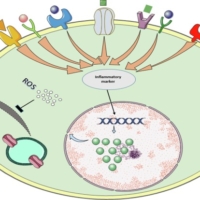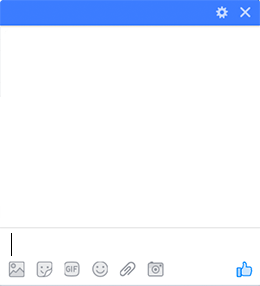Afraid During A Panic Attacks, or Afraid OF Panic Attacks? (Podcast Ep 250)
Hey there, I’m Drew and you are
I’m definitely listening to the anxious truth. This is the
the podcast that covers all things anxiety, anxiety disorders and
anxiety recovery. So if you’re struggling with things like
panic attacks, panic disorder, agoraphobia, or health anxiety,
this is the place for you. This Week on the podcast, we’re
talking about one of those weird, subtle, nuanced parts of
anxiety recovery, which is the difference between being afraid
during a panic attack, and being afraid of a panic attack, which
sounds strange, but it matters.
So let’s get into it now. Hello, everybody, welcome back
to the anxious truth. I am Drew Linsalata, creator and host of
this fine podcast. And this is episode number 250 250. We are
recording in March of 2023. In case you’re listening in the
future, if you’re new to this podcast, and you just stumbled
in or accidentally stumbled upon the
YouTube channel, welcome. I hope you find this content helpful.
And I hope you stick around. If you’re a returning listener or
viewer will welcome back. I’m always glad that you’re here.
Today we’re going to talk about one of those weird,
subtle and nuanced parts of anxiety recovery.
And that is
that there is a difference. And an important
difference between being afraid during a panic attack, and being
afraid of panic attacks, which at face value sounds like the
same thing. But it’s not hearing me out. But before we do,
I’ll give you the abbreviated version of this, head on over to
my website when you have a minute at the anxious truth.com
Because there are a ton of cool resources there. There are
workshops and courses there are three books that I’ve written
about anxiety and anxiety recovery. 249 podcast
episodes are completely free before this one. And
there’s a link to all of my social media platforms, I
produce the material to try to help. So I would urge you to pop
on over there, take a look at it all, and avail yourself of the
resources. They’re there to help and hopefully, they will.
And if
you’re digging this work, and it’s helping you in some way,
and you want to find a way to support it, all the ways you can
do that can be found also on my website at the anxious
truth.com/support. And financial support is always appreciated,
but never required. however, the way you support this work, whether
it’s just listening to the podcast, writing a review on
iTunes or liking a YouTube video, I appreciate you very
much.
Thank you very, very much for your support, your time, and
your attention. So let’s get into today’s topic. And that is
the difference between being afraid during a panic attack
and being afraid of panic attacks. Because of the way we
define recovery, and by the way, if you are not struggling with
panic attacks, this episode might not necessarily completely
apply to you. But I promise to keep it as brief as I can, you
might get something out of it anyway.
If you are struggling
with panic attacks or panic disorder, then this is
aimed directly at you. So being afraid during a
panic attack and being afraid of panic attacks are two
different things. Recovery from something like panic disorder,
which was my own experience, has nothing to do
with having a panic attack and not being afraid during that
panic attack. Even completely recovered. People like me, are
afraid during the panic attack that’s just baked in
physiologically psychologically to human beings. We call it a
panic attack for a reason, panic fear, it’s scary. So during a
panic attack, even a completely recovered person will experience
fear. That’s normal. And if you are working hard to to to
try to not be afraid during a panic attack, you can stop doing
that, because it’s never going to work.
And I see far too many
people in this community aiming to do that. They hear me say that I
don’t care if I have panic attacks, which is true. I do not
care if I have a panic attack today, tomorrow, next
week, or ever again, I don’t know. But that doesn’t mean that
I don’t have moments of fear. When I do experience a panic
attack, which can happen once or twice a year, maybe randomly.
Who knows? I don’t know. So why do I say that this
matters? Well, number one, it matters because some people are
pointing at an unrealistic goal.
They think that somehow you
should be able to have a panic attack and feel nothing. But if you
felt nothing then it wouldn’t be a panic attack what it is like you
will feel the symptoms, you will feel the sensations you will
have scary thoughts, and you will experience fear. For me what it
looks like is during those initial moments when I when I
know that it’s going to bubble over to panic. And that can
happen to me like I said maybe once or twice a year. But
it’s inconsequential in the end, and we’ll get to that. But
there’s always that moment of oh, there’s still an O moment I
can have that moment. So that’s normal. I can’t get rid of the
oh moment the oh no moment, The OMG moment. Like it exists
because I am alive. I am human. And I work like every other
human being does. Was. So it would be unrealistic for me to
think that I could experience panic or that anybody could
experience panic and not have that oh moment.
Yes, I can think
for a second. Oh my God, what’s about to happen? Oh, what is
this? Maybe it’s not a panic attack, I can have all of those
thoughts and I do you know, the last time I had a panic attack
was going back months. And yeah, for a couple of seconds, I had
those thoughts because that is normal that is natural that is
to be expected that is part and parcel of the process. I cannot
get rid of that. Nor can you so you can stop trying.
But the
the difference is that for me, once I recognize what’s going on, and
I recognize those OMG thoughts and interpret that
catastrophic interpretation, I have enough experience with
this, and enough practice and enough of a skill set where I
can just take half a step backward from that, and put a
little bit of air gap between me and no thoughts. So I can
disengage with them, let them race, let them run their course.
And then I’m basically in a nonreactive mode, although still
feeling afraid, there’s no doubt about that. The fear doesn’t
last, as long as it did when I was struggling.
That’s
true. But initially, I am as afraid as you would be. So just
get that clear. I think anybody in the world who experiences a
panic attack has that sense of fear, especially at the
beginning of the panic attack. So why do I say that there’s a
difference between being afraid during a panic attack and being
afraid of panic attacks, because being afraid during a panic
attack is a universal experience. If you checked
out my panic attacks workshop, which you can certainly find on
my website at NHS truth.com, I went through in that workshop,
I went through statistics on the number of people just in the
United States alone, who will experience at least one panic
attack in the next 12 months.
And it’s a lot of people, we
have a lot of people here. So if we go by the the most generally
accepted and vetted sources of statistics that tell us roughly
10 to 11% of the US population will experience a panic attack
or more in 12 months, that is well over 27 million adults.
There are a lot of people here, which means a lot of panic
attacks, and for every one of them, there will be a sensation of
fear. That’s just the way it is it’s a universal experience.
But
the difference is that of that large number of people, a very
small percentage of them will develop panic disorder. Now it’s
still a large number of people, just because we have a lot of
people here in the US. But a very small number of them will
develop, and a small percentage of them will develop panic
disorder, even though they will have a panic attack or multiple
panic attacks. Many people are walking the earth right
now who have multiple panic attacks. They happen to them
once every few months, a couple of times a year, once every few
weeks. Some people have regular panic attacks, who for
whatever reason, hate each one, but do not develop panic
disorder, where they become completely focused on the
attacks, worried about the next one, trying to avoid the next
one making their lives smaller and smaller, trying to never be
triggered. They don’t wind up there. But they do share the
universal experience of wow, it felt like impending doom,
something terrible was going to happen. It felt dangerous, there
was a threat My heart was pounding, they have the same
experience that you and I have, they just never develop that
fear of the attack only during the attack.
And why it matters
is because, in recovery, we are aiming to lose the fear of a
panic attack. And you might say, okay, drew your eight and a half
minutes into this. But I still don’t understand the difference.
The difference is I am simply unafraid of a panic attack, even
though during the attack, I recognize that I will be afraid
for some amount of time. Because the panic attack to me is a
discrete event. It starts it peaks, it comes down, it ends
it’s over. There are no ramifications beyond that
particular event. So, therefore, I can look at it as an unwanted
situation. Something that I don’t want to happen, it’s
disruptive, it’s annoying. In the moment, it’s frightening and
rattling. But when it’s over, it has no impact on my life. So
therefore I do not have to be afraid of the next one. So what
we’re working toward in recovery is not somehow being able to
magically panic without fear.
It’s to panic with fear, manage
that fear differently relate to that fear differently, or
don’t react to that fear differently than you do. Now. If
you’re stuck and learn that like when the event is over, it is
over. And it was unpleasant, certainly impactful,
but not anything that you have to worry about going forward if
it happens again. I guess it’ll happen again. If it doesn’t
happen again. It doesn’t happen again. Now, admittedly, as
you’re going through the recovery process, the first time
you do that you’ll feel like a huge superhero which is awesome,
it’s a great feeling when you just drop all resistance and
let it run its course.
And you discover that oh my god, this
dude was right, it ended faster that way. It
doesn’t mean that the last panic attack you’ll ever have. But
when you begin to have those experiences piled on top of each
other, strangely, paradoxically, when you stop trying to prevent
them, and you know that, like, I don’t like this, but I’m capable
of moving through it, they do start to happen less and less.
So I always say, the elimination of the recurring panic attacks,
or the breaking of the panic cycle is not the it’s not the
primary goal and recovery, it’s the happy secondary effect. So
when you learn that you can be afraid during the event, but
don’t have to be afraid of the event, then things change. And
then they do begin to happen less and less. And then if a
panic attack does pop up now and then which can happen, some
recovered people will have them sometimes they are still 100%
recovered. You can disagree with me if you want.
But I’ve
answered those questions a couple of times, I’ll answer
them sometimes when they come up. But I’m not going to debate
that somebody who is not afraid of a panic attack anymore, even
though we’re afraid during the attack can be justified in
saying that they are fully recovered because their life no
longer revolves around panic in any way, shape, or form. If I’m
going to take a trip to Los Angeles and get on a flight to
take six hours across the United States, in no way shape, or form
is the word panic or anxiety, ever even entering into the
dialogue, either externally or in my head when planning
that trip or considering it. It’s a nonfactor. I consider
panic and anxiety when buying my plane tickets just as much as I
consider I don’t know, white rhinos. They exist, but they
aren’t impactful in my life. See that? I mean, it’s a
crazy, I’m not trying to dismiss anybody’s problems, believe me,
I was you.
I was you. But the difference is, when you are not
afraid of the attack because you’ve learned a new way to
relate to the fear during the attack, then things begin to
change. But you have to point in the right direction. Put
yourself on a path that gives you a chance to succeed. Putting
yourself on a path that somehow is supposed to mean you panic
without being afraid during the panic is not realistic.
And then
you will get frustrated and you will think you’re failing and
then you will give up, which is a shame, you don’t have to do
that. You’re just asking something of yourself, that
probably isn’t possible. Now, I think operationally, if you
asked am I as afraid as I used to be? Probably in small
moments, but I think I would say that those moments last much
less than they used to. So the peak of my fear is probably as
high as it always was. Even in the days when I was struggling
and not leaving my house and afraid of everything. I’m
probably just as afraid just that that level of fear is much,
much shorter in duration now, but it still exists. Does it
ever get to zero? I mean, we could probably make the argument
that given the fact that I can have seen anxious days now and
then it could start to bubble up but then short circuit
and never make it to panic.
Well, that is because I’m not
afraid of the attack. So since I’m not trying to stop it, I’m
just going to let whatever happened happened that day. It
doesn’t come. So that could be so you might argue we’ll see.
You’re not afraid. You’re not afraid? Well, you’re right,
because I’m still not I’m not afraid of anxiety at a low
level at a medium level at a rising level. I’m not afraid of
it. I might feel uncomfortable. I just under just understand I
don’t have to treat it like it’s like it’s dangerous. I don’t
have to treat it like it’s an emergency.
And that’s what
changes things. I’m not afraid of a panic attack possibly
happening. I prefer it didn’t. But I’m not afraid of it.
So I understand I’m not giving you a lot to go on in terms of
like, here’s step one, step two, do this do that it is this isn’t
about that this is sometimes about a framing about
conceptualizing about how you approach these things. And I
think it’s important to look at recovery, as the process of
learning to not be afraid of panic, not being unafraid, in
panic or during panic.
And it might take you a while to get
your brain around that. And you might finish listening to this
15 minutes and say, I still don’t get it man, like, you
know, how could this not be the same thing? And I understand
that when you’re in the thick of it. And this all feels so
incredibly important to you and so urgent and so dire, and so
impactful and so scary. It can be hard to tease these concepts
apart. So it might be hard for you to see the get clarity
on this, through that lens of the intense fear and urgency
that you’re looking through today. But I promise if you at
least try to conceptualize it this way. And give yourself a
break. Oh, I’m allowed to be afraid during a panic attack.
That’s not the problem. The problem is that When it’s over,
I will continue to resist the next one before it even happens
because I’m still afraid of it.
Because I consider the fear I
just experienced a real danger. If I at least start to make that
change, I give myself a fighting chance of actually getting
better, and changing my life and getting the life back that I
want. But aim at the right target, and understand the
concepts, at least intellectually, even if
emotionally, you have a really hard time buying into what I’m
saying today, you might think, afraid, don’t panic, afraid of
panic, same thing, man. This is just a word, Sal. And you’re not
helping me, I understand that I do. But if you think on
it a little bit, especially in your more rational times, when
you’re not feeling super high levels of anxiety and panic, you
may begin to see what I’m saying here, aim, it’s always aimed at
the right target. And we aim at the right target by allowing the
fear during the panic and working on new ways to relate to
that.
Right. It’s not the it’s not the sensation, it’s not the
thought. It’s not the symptom. It’s the relationships, we form
with those things, that we work on changing and recovering. And
that makes us less afraid of a panic attack, even though we’re
afraid during. So how’s that for just a whole lot of words in 16
minutes and 15 seconds full of conceptualizing and framing and
subtlety and nuance that doesn’t have a lot of steps. It doesn’t
seem very programmatic or method, you know, methodical
here, I’m sorry, I couldn’t give you particular things to do. But
sometimes you just need to sit and think about these things a
little bit. And try to reframe things just a little bit in this
way to help sort of point you in the direction you want to go in.
And that is it.
That is a relatively short episode,
finally have the anxious treat episode 250. In the books, you
no, it’s over because the music that is afterglow by my
friend Ben Drake, who wrote that song inspired, at least in part
by this podcast several years ago, and lets me use it in the
podcast ever since I’m eternally grateful for that because it’s
become kind of an identifying factor around here. And if you
want to find Ben and his music, you can do that on his website
at Ben Drake music.com. Go tell him that I said, Hello, if you
do that, and I will ask you a favor like I always do. If
you’re listening to the podcast on Spotify, or Apple podcasts,
or some platform that lets you rate or review the podcast,
leave a five-star rating, or maybe take a second and write a
little review if you’d like the podcast because that’s how more
people find us.
And more people get the help that hopefully they
are looking for. And if you’re watching on YouTube,
which this week you’re watching a still image and just listening
thank you anyway, but like the video, subscribe to the channel,
and hit the notification bell. So you know when I upload new
episodes, and leave a comment because at least twice a week I
look through and answer YouTube comments. They’re always good.
And that is it. Hopefully, you have found this helpful. I
appreciate you spending your time with me again like you do
most weeks. I hope I’m being useful to you. Keep going keep
moving forward, little tiny steps matter. I used to end the
podcast with every step matters no matter how small and I’ll
just remind you of that today. And I think I’m going to abandon
my Mandalorian saying because no one cares about that anymore.
I’m tired of saying it.
So I will just say thank you again
for listening. And I will be back next week with another
episode about I don’t know why but I’ll be here. I hope this
has been helpful. See you next week. The pressure you keep on dancing
not because your last song makes no difference if you’re right or
wrong. Now you’re on your way.
Free Personalized Birth Chart Reading | Individualogist.com
ⁿᵃᵗᵃˡ.ᶦⁿᵈᶦᵛᶦᵈᵘᵃˡᵒᵍᶦˢᵗ.ᶜᵒᵐ
ɪɴᴅɪᴠɪᴅᴜᴀʟᴏɢɪꜱᴛ ɴᴀᴛᴀʟ ᴄʜᴀʀᴛ
ʏᴏᴜʀ ᴀꜱᴛʀᴏʟᴏɢʏ ᴄʜᴀʀᴛ ʀᴇᴠᴇᴀʟꜱ ʏᴏᴜʀ ᴅᴇꜱᴛɪɴʏ…
ᴀ ᴄᴏᴘʏ ᴏꜰ ʏᴏᴜʀ ʙɪʀᴛʜ ᴄʜᴀʀᴛ ᴡɪʟʟ ʙᴇ ꜱᴇɴᴛ ᴛᴏ ʏᴏᴜʀ ᴇᴍᴀɪʟ ᴀᴅᴅʀᴇꜱꜱ. ᴘʟᴇᴀꜱᴇ ᴇɴᴛᴇʀ ᴀɴ ᴇᴍᴀɪʟ ᴀᴅᴅʀᴇꜱꜱ ᴛʜᴀᴛ ʏᴏᴜ ᴀᴄᴛɪᴠᴇʟʏ ᴜꜱᴇᴅ ɪɴ ᴏʀᴅᴇʀ ᴛᴏ ʀᴇᴄᴇɪᴠᴇ ʏᴏᴜʀ ꜰʀᴇᴇ ʙɪʀᴛʜ ᴄʜᴀʀᴛ ʀᴇᴀᴅɪɴɢ.
ʳᵉᶜᵉᶦᵛᵉ ᶠʳᵉᵉ ᵍᵘᶦᵈᵃⁿᶜᵉ ᵗʰʳᵒᵘᵍʰ ᵒᵘʳ ᵈᵃᶦˡʸ ʰᵒʳᵒˢᶜᵒᵖᵉ ʳᵉᵃᵈᶦⁿᵍ. ᵈᶦˢᶜᵒᵛᵉʳ ᵃᶜᶜᵘʳᵃᵗᵉ ᵖʳᵉᵈᶦᶜᵗᶦᵒⁿˢ ᵃᵇᵒᵘᵗ ʸᵒᵘʳ ᶠᵘᵗᵘʳᵉ ʷᶦᵗʰ ᵈᵃᶦˡʸ ʰᵒʳᵒˢᶜᵒᵖᵉˢ!
















